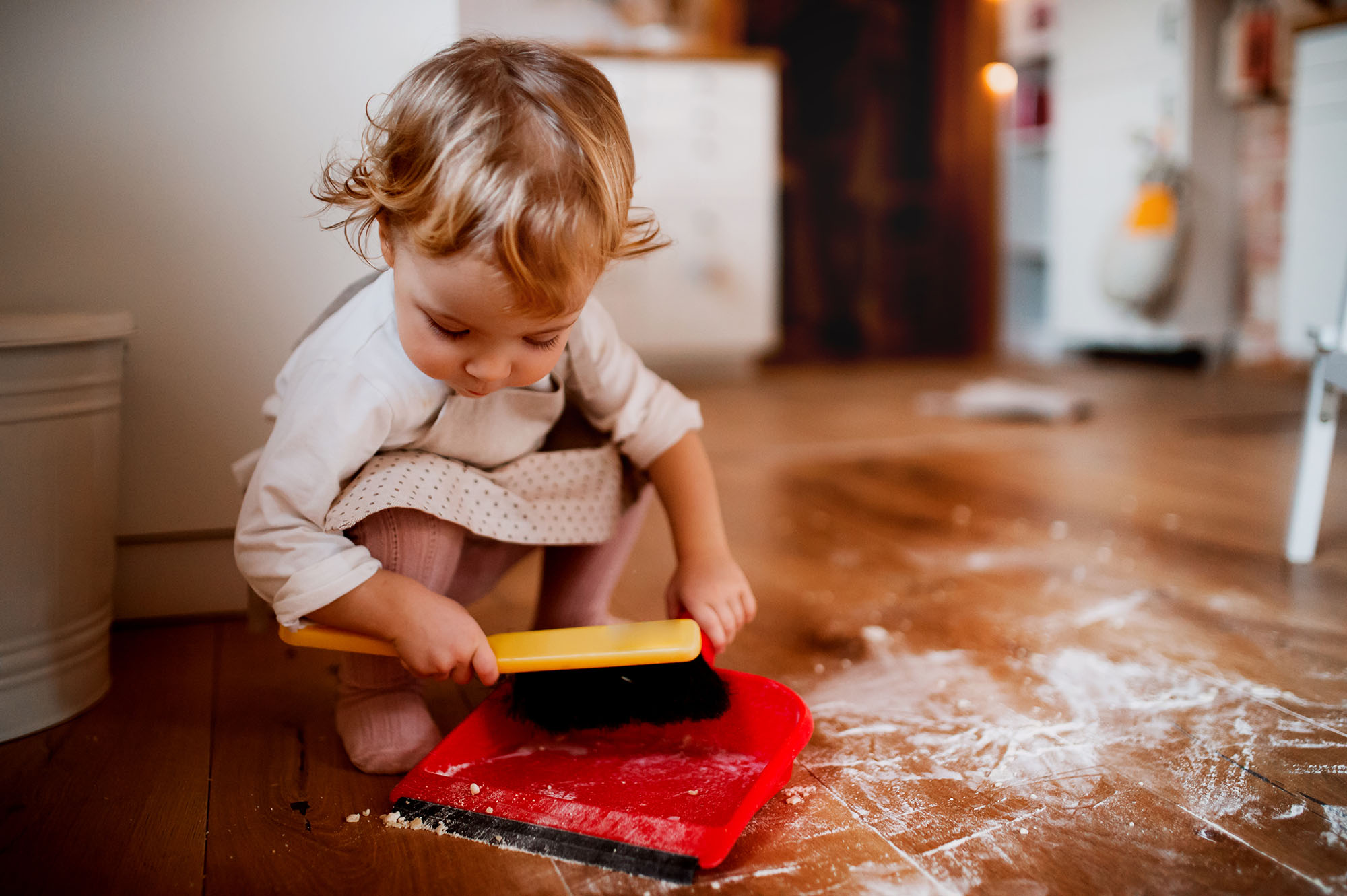Join the delegation movement
Teamwork
Chores are an opportunity to empower children but also to teach them about the value of teamwork. A chore board with the list of family member names and tasks that’s visible every day can serve as a great reminder. Stickers for completed tasks are terrific motivators for little ones (especially when they get to place them themselves).
Life Skills
It’s a good idea to give them age-appropriate chores to complete and as they grow, add to their repertoire of skills. Teach your little ones so they’re well-prepared years from now when it’s time to leave the nest.
Hierarchy
Don’t ask them to help, give them a task, and set expectations. When they do a good job, be sure to let them know that. Teach them, you’ll also be opening their eyes to how a chain of command works – another way you’re preparing them for the real world.
Responsibility
Each member of the family has a responsibility to complete their own tasks on the chore board for the household to run smoothly. If no one washes the dishes, you won’t have clean dishes come dinnertime. If no one washes the clothes, you won’t have clean clothes to wear to school. If no one picks up the toys in the living room, Grandma can’t come to visit. Each person and each task are essential cogs in the machine that is your family. It’s important to note that you should be careful never to use chores as a punishment or you run the risk of having your kids view those responsibilities as something negative. Instead, focus on helping them develop a good work ethic and to take pride in a job well done.
Need some help determining which tasks are age-appropriate? Here are some suggestions:
3-year-olds: Preschoolers love to mimic what the grown-ups are doing. You can start with things like matching socks and delivering laundry to their siblings’ rooms, picking up toys in the playroom, or dusting tabletops, lower cabinets, and baseboards with an old sock on their hand. They’ll be teaching you the value of patience at the same time.
4- and 5-year-olds: This is a great age to put them in charge of cleaning their own rooms, helping with whatever dinner prep you’re comfortable with – like mashing potatoes or icing the cupcakes for dessert, setting and clearing parts of the table, bringing in the mail, watering the flowers in the garden and helping dust the hardwoods with old socks on their feet.
6- and 7-year-olds:
At these ages, they can start helping with bigger tasks like walking and feeding the dog, emptying the dishwasher, making their own beds and lunches, folding laundry, pulling weeds, and sorting the trash from the recycling.
8- and 9-year-olds: They are now old enough to handle helping with younger siblings, setting the table by themselves, vacuuming the carpet and sweeping the kitchen floor, cleaning the bathroom, watering household plants, washing the car, and raking leaves in your yard (but don’t be surprised if they jump in those piles and must do it again).
Tweens: Not much stands in their way of helping with most household tasks at the ages of 10- to 12-years-old, such as washing and folding laundry, hanging up clothes in the closets, putting away groceries, taking out the garbage, and filling the dishwasher properly then starting the cycle.
Teenagers: After many years of adding to their skill set, you should be able to have a helper on virtually any task such as cutting grass, changing sheets on their bed, preparing meals, organizing the pantry and fridge, babysitting younger siblings, and even making grocery runs when they’re of driving age.
Perhaps the strongest motivator for having a “delegation revelation” is that when everyone pitches in to help the household run smoothly, it frees you up to spend more quality time together. Instead of having one or two family members tackling the chores all on your own, you could be making special family memories as well as future responsible members of society.

